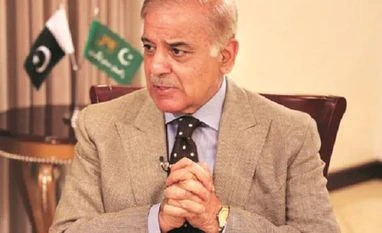Pakistan PM requests China's support in reviving Karachi Circular Railway
Pakistan Prime Minister Shehbaz Sharif requested China to support planned revival of the Karachi Circular Railway project to end woes of hundreds of thousands of commuters in largest metropolis.
)
Today, the almighty has saved Pakistan and the 22 crore people of the country. This is the first time when the vote of no-confidence motion was successfully passed. The people of this country will celebrate this day: Shehbaz Sharif
Pakistan Prime Minister Shehbaz Sharif on Monday requested China to support the planned revival of the Karachi Circular Railway (KCR) project to end the woes of hundreds of thousands of commuters in the country's largest metropolis.
Stressing that KCR would be a "gift for the people of Karachi" and bring great dividends, Shehbaz took the opportunity of the inauguration of a mass transit bus project here to convey his request to Chinese President Xi Jinping to "reconsider supporting KCR for Karachi".
Sharif, in his request to Beijing, underlined that the project's completion would create great feelings for China among the people of Karachi as well as the rest of Pakistan, the Dawn newspaper quoted him as saying.
The original KCR was commissioned in 1964 to help Pakistan Railways employees commute from their homes in the east of the city to the city and cantonment railway stations.
It was expanded over time and eventually evolved into a 44km loop connecting the Karachi port and commercial areas around the city centre. The revived KCR project is expected to revamp the public transportation system of the metropolitan city of Karachi.
Also Read
Sharif, who was appointed Prime Minister a week ago, also expressed gratitude towards its "all weather friend" China for "strengthening Pakistan's economy" and supporting it on all international forums.
Islamabad Metro Bus Service project on a stretch of 11 kilometres from Peshawar Morr to Islamabad International Airport will benefit nearly 50,000 commuters every day. The project was supposed to be launched in 2018 but was delayed.
Sharif was, however, quick to blame the delay of the launch of the project on the previous government led by Imran Khan's Pakistan Tehreek-e-Insaf party and its "lack of will to serve people."
He recalled various mass transit projects launched in Lahore, Rawalpindi and Multan during Pakistan Muslim League-Nawaz's (PML-N) previous tenure.
Sharif also promised the people that his government will ensure the quick implementation of all the projects of public importance.
(Only the headline and picture of this report may have been reworked by the Business Standard staff; the rest of the content is auto-generated from a syndicated feed.)
More From This Section
Don't miss the most important news and views of the day. Get them on our Telegram channel
First Published: Apr 18 2022 | 6:03 PM IST
